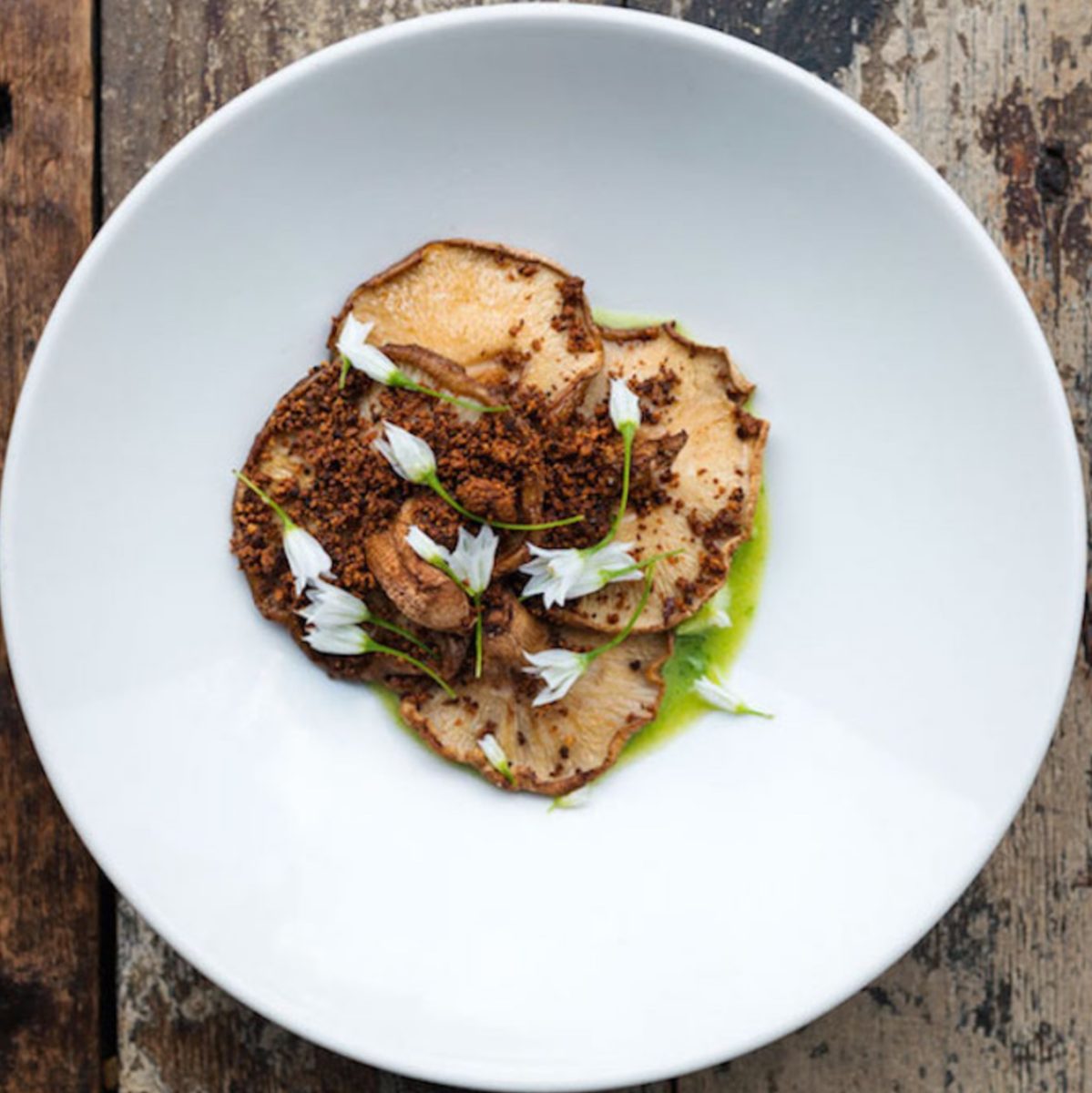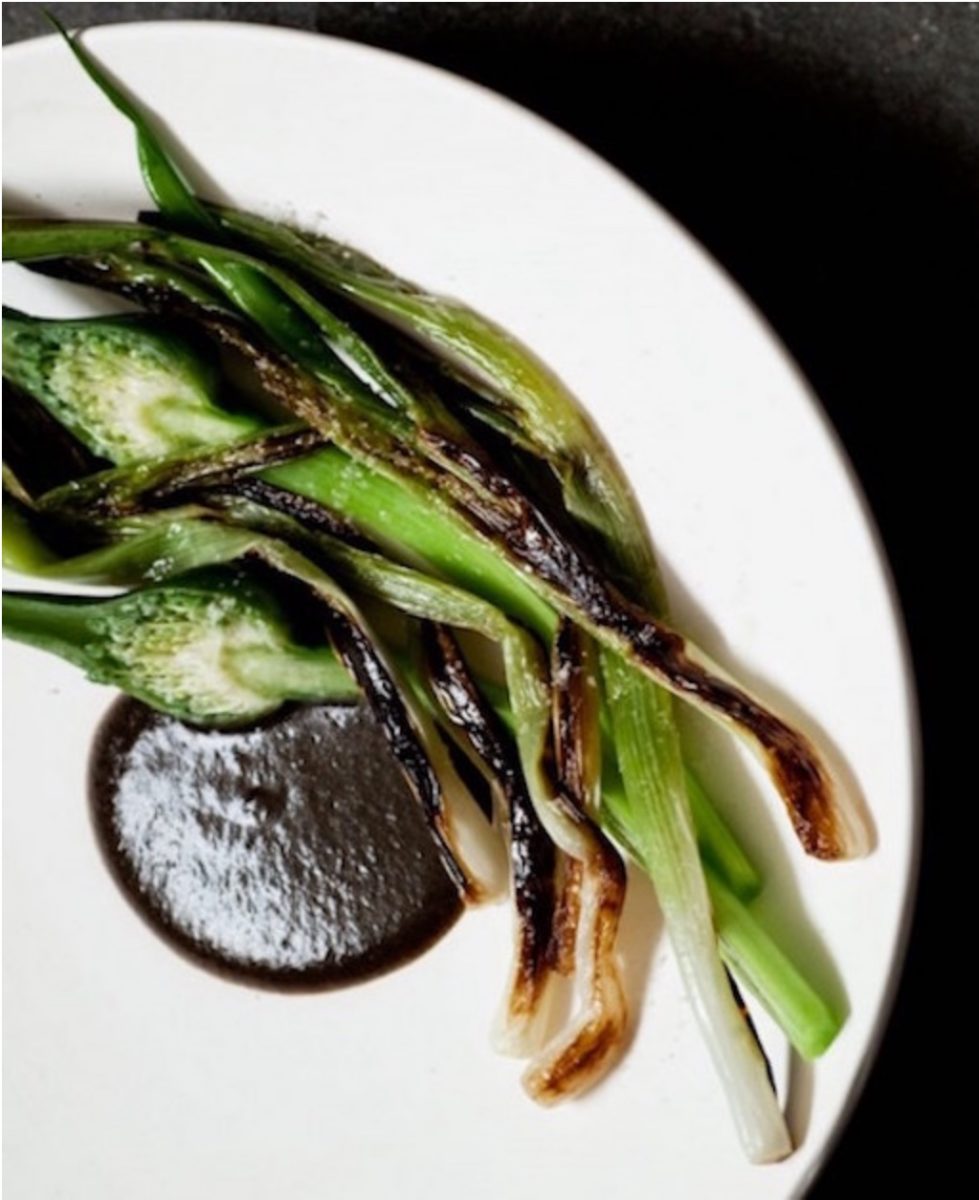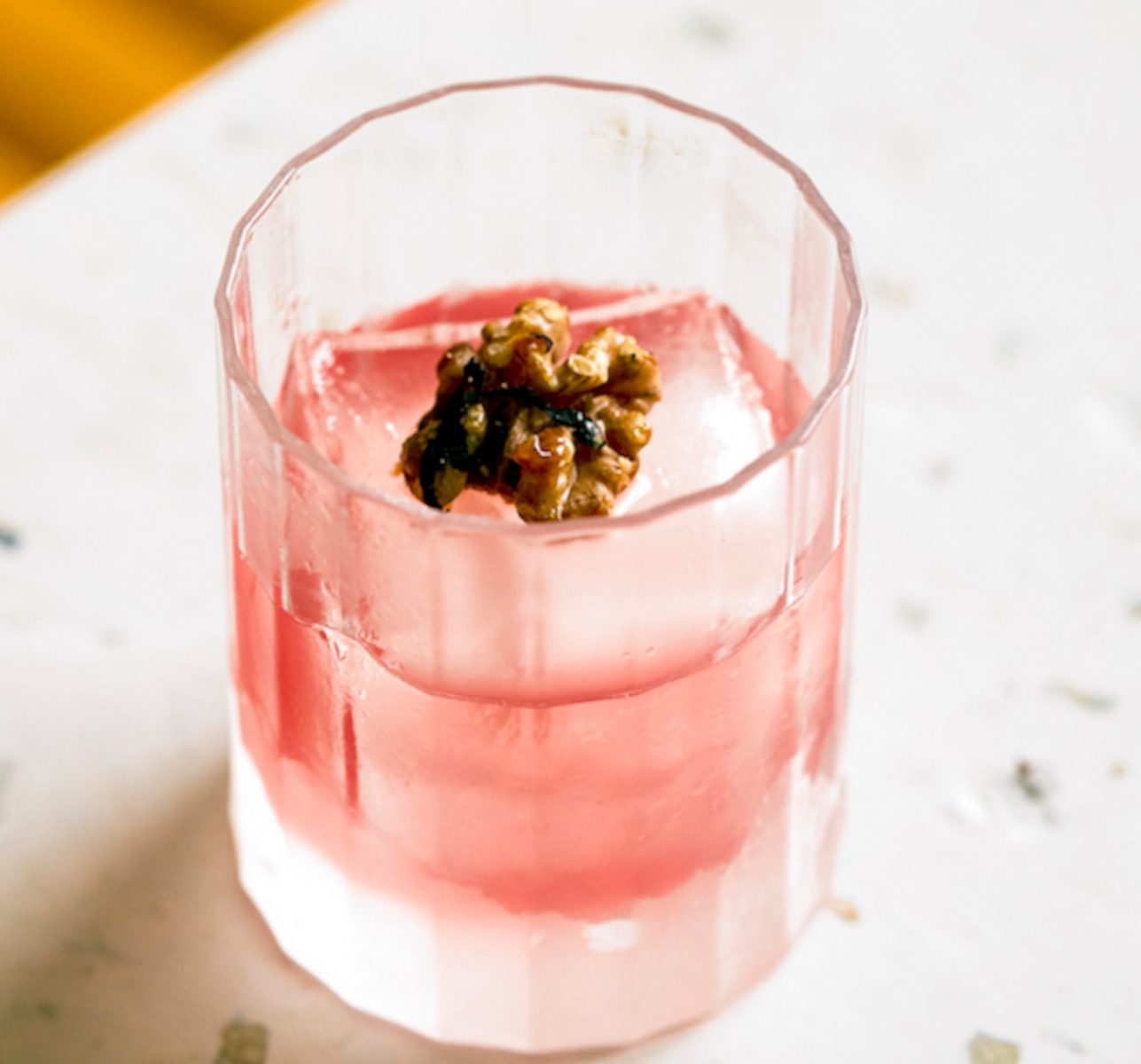Zero Waste Dining – Here’s What Forward Thinkers are Doing Right Now
Approximately 1.3 billion tonnes of food is wasted each year, with more than 10 million tonnes of this disregarded in the UK alone. And this figure is rising — an estimated 870,000 children in England go to bed hungry every day. In London, humanitarian organisations like The Felix Project are working alongside restaurants and shops to source fresh produce from its suppliers and deliver healthy meals to the homeless and vulnerable. Globally speaking, more and more consumers are demanding transparency about where their food comes from and where the waste goes. Restaurants are taking note and here eco-chef Tom Hunt dishes out the intel on the restaurants around the world reducing waste and increasing their social sustainability at the same time.

Tom Hunt’s zero-to-landfill restaurant heroes
Azurmendi, Bilbao, Spain
A sophisticated and elegant restaurant run by visionary chef Eneko Atxa, the Azurmendi is a striking glass structure powered almost entirely by geothermal energy. All of their produce is grown on site in the restaurant’s greenhouse. The kitchen gardens support a diversity of rare species and value the produce to the utmost.
Blue Hill Stone Barns, New York, USA
The Rockefeller Estate comprises an organic farm. Chef Dan Barber who runs it is a heavyweight in today’s new environmental food scene. Barber goes way beyond the idea of zero waste and farm to table, seeking out alternative ways to support farmers in a zero-waste fashion.

Cub, Dalston, London
Experiential and exciting, Cub champions zero waste, delicious, pre-industrial food and offers a window into the future of the industry. The creative genius of cocktail aficionado Mr Lyan and chef Doug McMaster, Cub’s set menu, inclusive of creative cocktails, costs £45 and is bursting with sustainable, would-be waste ingredients. Dishes may include a deconstructed tomato salad and ‘shrooms on shrooms’: king oyster mushrooms served three ways. Both are delicious. Cub’s eco credentials don’t end at desert; the tables are all made out of recycled yoghurt pots and staff truly take pride in the dishes provenance and restaurants ethos.
Osteria Francescana, Modena, Italy
Voted into the top spot in the 50 Best Restaurant Awards for several years running thanks to Chef Massimo Bottura who has also founded community kitchens around the world from Brazil to Milan and London all of which salvage food waste and make it into delicious meals. Bottura has taken the fight against food waste and spread the message across the highest end restaurants.

Oakridge, Yarra Valley, Australia
Chef Matt Stone constructs his seasonal menus from the restaurant’s eponymous kitchen garden. Matt Stone has worked with trailblazing environmentalist Joost Bakker on several projects and popups and follows a minimum waste philosophy.
Poco Tapas, Bristol, England
Honest, sustainable and reliably delicious, Poco Tapas is a in the heart of Bristol. Seasonal sharing plates are prepared in the open kitchen, they fuel the restaurant’s transparency and an element of theatre to the cooking keeps Poco’s innate sustainability sexy. Produce is 100 per cent seasonal without exception and the majority of it is British and sourced within 50-100 miles of the restaurant. 100 per cent of their waste is composted and recycled, and ingredients are ordered daily to ensure dishes are fresh and an excess of produce is avoided. Community Farm, The Severn Project and Wiper and True are just a few of the restaurant’s suppliers. Not a paella in sight, dishes include Deep fried oysters with kelp aioli, Slow roast pork belly with lemon and fennel and Seared cauliflower steak with hazelnut ajo blanco, and all can be enjoyed in the restaurants cozy atmosphere under the renewable-energy powered lights.

Silo, Brighton
Seriously good food serious about sustainability, this was the UK’s first zero-waste restaurant, bakery and coffee shop demonstrates the determination and imagination of founder and chef Douglas McMaster. Made entirely from upcycled materials the stripped-back interior of thick wooden beams and exposed brick walls, is reflective of the restaurants raw and enriching commitment to sustainability. Produce for the plant-based menu is foraged or sourced locally and sustainably, delivered to the restaurant in reusable containers. No plastic here, except for in the plates which are made from recycled plastic carrier bags. Bertha, Silo’s in-house composter, transforms the restaurants waste into compost within 24 hours. The talented team at Silo skillfully handle the fresh hyperlocal ingredients and transform them, as if by magic, into innovative and harmonious flavour combinations that change with the season.
The Captain’s Galley, Scrabster, Scotland
For six months of the year, this multi award-winning restaurant monopolises the hearts of Scrabster’s locals and draws visitors from afar. For the other six, the team is planting seeds, creating menus based on the purest-of-pure ingredients and exploring new ways to minimise waste and pollution. Owner and chef, Jim Cowie goes out to the wharf every morning to hand pick fresh fish for the restaurant. Reliant on the daily catch, the menu is always changing and guests are offered full disclosure on the origins of the ingredients in their meals. Recycling to the next level, even the waste oil from the restaurant is recycled to power Cowie’s car.

